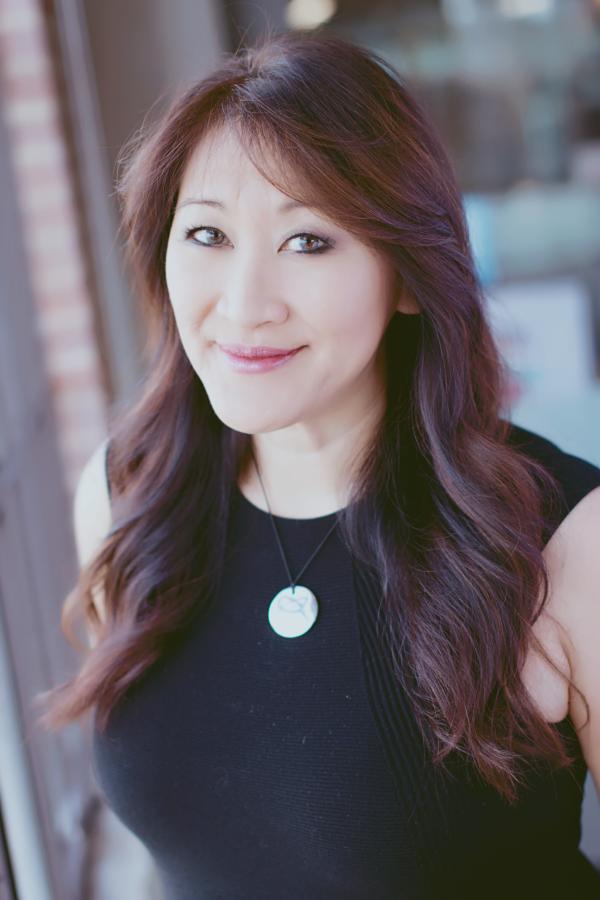Westmont Magazine SnapNurse: Quickly Connecting Nurses to Jobs and Hospitals to Nurses
Cherie Pae Kloss ’90, who won an Ernst and Young Entrepreneur of the Year U.S. National Award in 2021, grew SnapNurse from $1 million to $1 billion in two years with a little help from her friends. As the business took off, she recruited Judy Dimeny Messer ’90, Sabrina Agnew Stark ’90, Julie Herrscher Sibley ’90 and Heather McCaffery, wife of Sean McCaffery ’90, to join her in the startup.
We’ve been the closest of friends since we met at Westmont,” Cherie says. “These smart, capable women took time out to raise their kids. When I started scaling up SnapNurse, I reached out to them to work for me remotely. When you’re in your 40s, it can be challenging to find a job after more than a decade away. But I knew they’d all work hard, and they’ve done incredibly well, earning big bonuses and helping me build the business.”
Cherie started SnapNurse in 2018. She began with a handful of nurses and now works with 6,000 nationwide, including a big concentration in California. SnapNurse has grown to $2 billion, headed to $2.5 billion by the end of 2022. “Dedicated people have helped me grow so quickly,” she says. In addition to her friends from Westmont, she has hired people from her PA class at Emory.
Cherie majored in biology at Westmont and earned a Master of Science in Physician Assistant Studies in anesthesiology at Emory University in Georgia. For 17 years, she worked as an anesthetist, the last 10 years as a contract or traveling nurse. As the gig economy exploded with companies like Uber, she envisioned something similar for nurses. Travel nursing developed in the 1970s in response to shortages and continues to be a popular option. Cherie recognized the potential for developing an app that quickly connected nurses seeking work to hospitals needing staff.
With no tech or business experience, Cherie sought partners who could implement her idea. Edwin Marcial, the founding chief technology officer (CTO) of Intercontinental Exchange, helped her put together a tech team. Led by David Burton, CTO at SnapNurse, the group created a health care staffing exchange. The platform connects a range of nurses of all ages — RNs, LPNs, EMTs, CNAs, pharmacists, respiratory therapists and more — to hospitals within 24 to 48 hours. SnapNurse quickly processes requests and provides fully vetted, qualified nurses to hospitals, arranging for travel and housing if required.
“Speed differentiates us from the others,” Cherie says. “Nurses call it being snapped. We meet both urgent and long-term staffing needs. We provide flexible contracts for nurses so they work when they want, where they want. We pay them immediately at the end of each shift. With such dire shortages, many of them don’t need to travel. They can live at home, use SnapNurse and choose when to work.”
The nursing shortage existed before the pandemic, which has exacerbated it. Cherie says aging baby boomers are retiring early and that 20 percent of nurses have just quit. Once one of the few professions open to women, nursing must now compete with a wide range of careers. “Hospitals need to make nursing more attractive,” she says. “The flexibility of contract work appeals to many. Nurses now travel with their families. Their spouses can work online, and their children can attend school remotely.”
Cherie proudly reports that women of color make up 75 percent of the SnapNurse workforce, including many Black women. “We’re very inclusive and treat everyone equally,” she says. “We also have a diverse internal staff.”
She reads many SnapNurse testimonials on social media. “Our nurses write that we helped them get out of debt, buy a car or send a kid to college,” Cherie says. “Many of the nursing heroes on the frontlines are Black women. They’re creating a legacy for their families and putting aside money for the future. It’s great being a part of that story. We’ve helped hospitals with staffing during the pandemic while helping nurses make a better life for themselves.”
Cherie built SnapNurse without a penny of venture capital. Unable to attract equity investors, she turned to her family and friends, raising $17.4 million. Now that they’ve grown so quickly, she hopes the startup will finally get some attention and funding. Cherie is developing a partnership with Uber Health, which will provide transportation for patients needing regular treatment such as chemotherapy at medical facilities. SnapNurse will send a low-level staff member in the Uber with the patient to make sure they get home safely and offer simple home care.
Another initiative provides training for nurses who’ve only worked for a year so they can get better-paying jobs in emergency rooms or intensive care units. Cherie calls it SnapSchool, which can help hospitals solve the shortage of specialized nurses.
Once a single mom barely making ends meet, Cherie seeks to provide opportunities for women of all ages and colors who want a better life. She’s thankful to provide for her children, a son, 18, and a daughter, 16. She’d love to employ more Westmont alums.
“If you’re looking for opportunity, we have lots of positions open,” she says.


